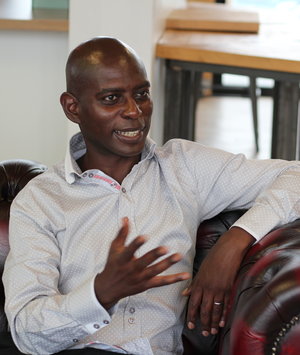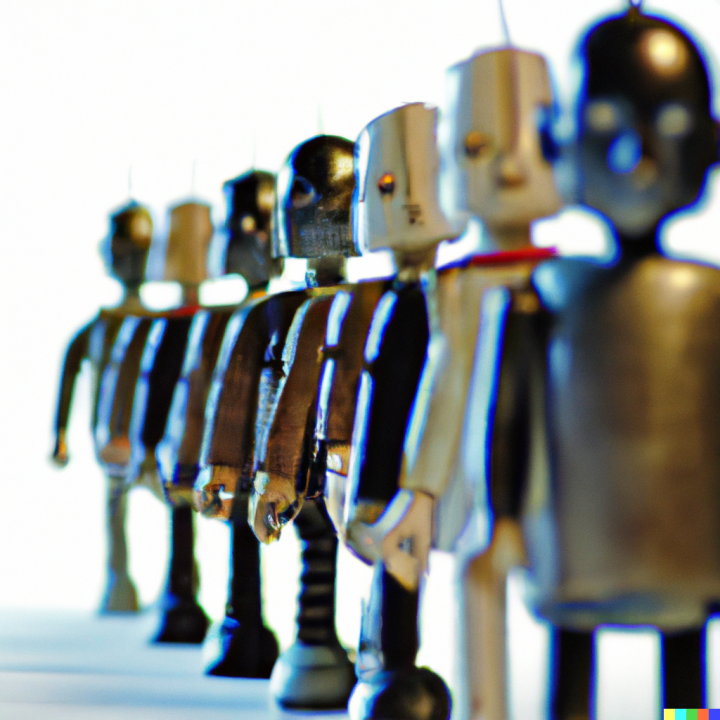Re-skilling for the AI world of work

With Covid fast diminishing in the rear-view mirror, deciphering what ‘new normal’ habits are still standing is becoming a popular pastime. Although not immediately apparent, many of the changes have their roots in technology, the secondary and tertiary impacts of which have forced us to find new vocabularies.
- Firstly, there are attitudinal shifts, giving rise to the ‘Great Resignation’, its humbler cousin ‘Quiet Quitting’ and its 2023 reboot ‘Conscious Quitting’.
- Then there are behavioral shifts, such as ‘Hybrid Working’, which mean complete strangers can get away with calling me a ‘TWaT’ because I choose to come to the office only on Tuesdays, Wednesdays and Thursdays.
- Next are organizational shifts, which can be explained by increasing numbers of part-time workers and indie contractors, as well as the geographical redistribution of workers away from cities.
- The final piece in this jigsaw will be widespread vocational shifts as a result of technology automating or augmenting existing roles, establishing new ones, or disestablishing those that are harder to fight for in light of all of the above.
AI isn’t playing by the rules
The quiet revolution going on in AI suddenly turned into a raucous house party when ChatGPT went from 0-100 million users in two months, making it the fastest-growing consumer app in history.
By virtue, the general public was finally given a taste of the future which AI evangelists and Cassandras had both been prophesizing. Its success has opened the floodgates of our curiosity about new AI products and services, only marginally surpassed by the deluge of articles and videos asking ‘will ChatGPT take my job.’ And if it doesn’t, maybe Google’s Bard or Baidu’s ERNIE will.
“2023 will be remembered as the year we shifted uncomfortably in our seats”
New technologies come thick and fast, though rarely do they register a blip on the historical seismograph. This time is different. To most of us, 2023 will be remembered as the year we shifted uncomfortably in our seats.
Until fairly recently, the received wisdom was that if tech was coming for our jobs, it would ‘find and replace’ those whose roles were largely repeatable, with a finite set of outcomes. Actuaries, not actors. Articulated truck drivers not artists.

The ‘landscape of human competence’ diagram created to illustrate Hans Moravec’s theory proved as much – creativity would be the last skill standing.
The trouble is, advancements in AI are refusing to play by the rules. Technologies like DALL-E have artists in their sights, while Flawless’ TrueSync are coming for voice actors. From retail to rocket science, AI keeps breaking our previously agreed understanding of which jobs it’s qualified for and which it ain’t.
The truth is, it’s impossible to know how technology’s encroachment on labor will occur, given we’re only at basecamp. Even amongst AI experts, the jury is out as to whether these technologies will augment our work in the short to medium term or completely supplant it further out. But if, as the old saying goes, the future is already here, just unevenly distributed, it’ll be too late by the time we realize the water has started to boil around us.
The imperative to re-skill
For several years, Edelman’s annual Trust Barometer has seen a growing belief in both individuals and institutions in the business arena, in inverse proportion to that of government, media and NGOs.
For the first time, this year’s trust index revealed that business remains the only trusted institution; at 62%, more people are ready to believe than disbelieve global corporations. The same study revealed that business is now the sole institution that respondents perceive as both ethical and competent following a three-year rise in its ethics score. This may surprise many people, but the fundamental truth at the heart of this matter puts the onus on organizations to rise to the challenge.

“Organizations should be doing more to educate their staff well before their skills become obsolete”
The simultaneous rise in vocational uncertainty and corporate trust presents businesses with a responsibility. If the skills of today’s workers are misaligned with tomorrow’s labor requirements, then organizations should be doing more to educate their staff well before those skills become obsolete or before the policy wonks make it law.
This needs to go beyond simply encouraging discourse and comprehension about the inevitable and seismic shift we’ll see in the world of work over the next decade. BigCorp will need to dedicate significant resources towards the retraining of their people in order to aid a ‘just transition’ to a more automated future, and to prevent a global pandemic of wealth inequality. Don’t take my word for it. Nearly half of the Edelman respondents think so, too.
A wholesale re-education of this scale needs to connect seamlessly with pedagogy, and not simply at the higher education level but from pre-school through to retirement.
New technologies will change the world of work irrevocably, but the outcome won’t be purely vocationally destructive. Alongside AI, Blockchain and the Metaverse – both merely taking a rest in the trough of disillusionment before figuring out what they’re actually good at – will create swathes of new jobs that have never existed before.
“The future of human work will rely more than ever before on what truly differentiates us from technology”
The future of human work will rely more than ever before on what truly differentiates us from technology; our ability to connect with each other on an intimate level. Data, intelligence and analysis are nothing without the presentation layer of purpose, empathy and meaning, which we humans excel at.
And it is within this vein that the imperative to re-skilling should not simply be a reaction to the technologization of work, but a concerted effort to re-channel labor towards what will soon become the single largest industry sector humankind has ever known: saving the planet from ourselves.


